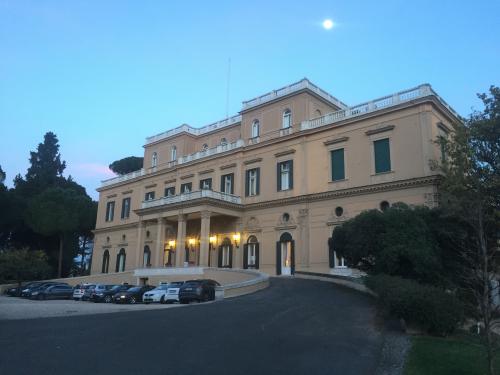British ambassador holds anti-corruption conference

ROME--On Thursday evening the ambassador for the U.K. in Italy, Jill Morris, hosted a round table discussion at her residence, Villa Wolkonsky, on the themes of corruption, money laundering, and the traceability of cash flow. Representatives from Italian and British law enforcement organisations contributed to the discussion. The aim of the evening was to provide a follow-up discussion on the anticorruption summit, which took place in London last May, and to share Italian and British approaches to the problems previously identified.
Rafaele Cantone, the President of ANAC (Italy’s anticorruption organisation), started the discussion by clarifying Italy’s approach in recent years to the problems of bribery and corruption. Cantone explained that, in Italy, the sector most at risk of corruption is that of public contracts, and that prevention is key when tackling this issue.
Cantone proved how prevention methods could be woven into the fabric of Italian law enforcement. He argued that if each Italian Public Ministry were to draw up a risk assessment, in which they identify possible sources of corruption and how best to tackle them, they would be able to implement prevention plans effectively, and seriously reduce the level of organised crime across the peninsula. A key part of prevention for Cantone is the change in mentality of the Italian public towards corruption and organised crime, and, going forward, it will be this new attitude, combined with the meting out of tough penalties, that will affect serious change.
Rodolfo Savelli, a professor of jurisprudence at the University of Genoa, expanded on the nature of organised crime in Italy, focusing specifically on the financial. He highlighted the importance of tracing cash flow in money laundering cases and being vigilant in the case of possible hidden transfers. Like Cantone, he showed support for making use of available penal methods, and ultimately making any legal action taken more homogenous.
David Green, the director of the Serious Fraud Office, demonstrated how the SFO employs an official structure, like one advocated by Cantone and Savelli, to tackle instances of corruption and bribery. The SFO utilises the Bribery Act of 2010 to hold companies to account for active and passive forms of bribery and corruption, and its visible independence from the government allows it to achieve this. One of the main ways in which the British anticorruption model functions to achieve this end is by employing a deferred prosecution model, as explained by the chief counsel for the SFO, Alun Milford. The aim of a deferred prosecution model is to be able to hold large corporations legally accountable for their actions. It gives companies the opportunity to cooperate with SFO and ultimately avoid sustaining a criminal conviction, as long it can be clear that the company will not commit the same crime again.
Richard Riley, director of the Home Office's Strategic Centre for Organised Crime, explainedthe importance of Criminal Finances Bill, essentially a national risk assessment, which was released in 2015. It identified the fact that London, as a global financial capital, is uniquely exposed to criminal finance. Moving forward, the government is looking to changing their approach to legislation, and adopting one that is broader, and with a more international scope in the face of corruption and organised crime.
Ultimately, what both countries are aiming for in the future is to visibly reduce national, and international, corruption, using transparent methods, which enhance public confidence.



